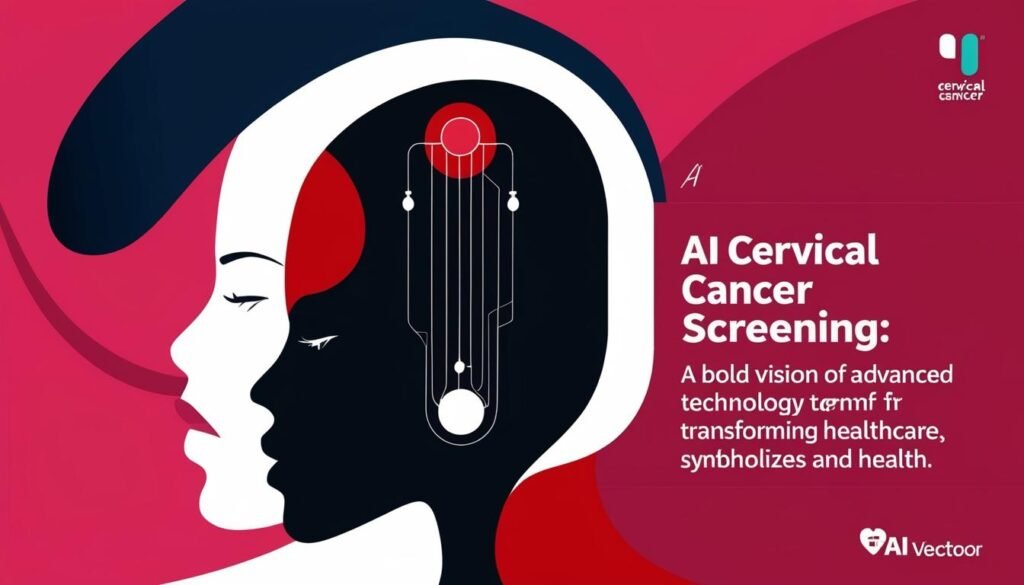A comprehensive review highlights the potential of AI to enhance cervical cancer screening and improve access to healthcare in underserved regions.
Cervical cancer continues to pose a significant health risk for women worldwide, particularly in developing countries where the incidence rates are noticeably higher. Despite the existence of preventive measures, many global initiatives are hindered by challenges such as insufficient healthcare resources and lack of effective screening programmes. The World Health Organization (WHO) has established an ambitious target to screen 70% of women aged between 35 and 45 years by 2030. This goal is viewed as crucial for reducing mortality rates associated with cervical cancer. Nonetheless, achieving this target necessitates the development of innovative and scalable solutions, especially in regions with limited access to healthcare services.
Recently, researchers from the Chinese Academy of Medical Sciences and Peking Union Medical College, in collaboration with the International Agency for Research on Cancer, published a comprehensive review in Cancer Biology & Medicine. The review thoroughly examines the current and prospective applications of artificial intelligence (AI) in enhancing cervical cancer screening methodologies.
The review highlights AI’s transformative capabilities in cervical cancer screening, particularly through advancements in medical image recognition that facilitate the identification of abnormal cytology and neoplastic lesions. By employing deep learning algorithms, AI can replicate human-like interpretations of medical images, which leads to a noteworthy improvement in the detection accuracy of cervical cancer. Moreover, the study details how AI can automate the segmentation and classification of cytology images, a crucial component for early diagnosis. An additional focus of the review is AI’s application in enhancing colposcopy procedures, which have traditionally suffered from subjective interpretations and a heavy reliance on highly trained professionals. The integration of AI into this process is envisioned to deliver more objective and efficient screenings.
Dr. Youlin Qiao, who is the lead author of the study, conveyed the significant potential of AI in cervical cancer detection, stating, “AI has the ability to revolutionize cervical cancer screening by offering automated, objective, and unbiased detection of both cancerous and precancerous conditions. This technology is particularly vital for bridging the healthcare gap in underserved regions.” This indicates a strong belief in AI’s capacity to alter the screening landscape, thereby making significant strides towards more effective healthcare access.
The implications of AI-assisted cervical cancer screening are substantial. In addition to improving detection rates and operational efficiency, this technology has the potential to broaden access to screening services in remote or resource-limited settings. If implemented on a global scale, AI-powered screening could dramatically diminish misdiagnoses, enhance healthcare delivery, and inch closer to the overarching goal of eradicating cervical cancer by the end of the century.
However, the path to widespread clinical integration of AI technology faces several obstacles:
-
Data Standardization: There is a pressing need to create global platforms for standardised and annotated datasets to ensure that the training data is both diverse and of high quality.
-
Ethical Integration: It is crucial to address concerns around transparency, privacy, and accountability to foster trust among clinicians and patients alike.
-
Model Interpretability: Improving the explainability of AI models is vital to building confidence for seamless integration into clinical workflows.
-
Validation Across Contexts: Robust external validation studies are needed to establish the efficacy of AI tools across various contexts, alongside equipping clinicians with the requisite training for effective use of these technologies.
By addressing these challenges, AI-driven cervical cancer screening stands to transform global healthcare, providing a formidable resource in the fight against one of the most preventable forms of cancer.
Source: Noah Wire Services
- https://www.wcrf.org/preventing-cancer/cancer-statistics/cervical-cancer-statistics/ – Corroborates the high incidence rates of cervical cancer globally, particularly in developing countries like China, India, and Indonesia.
- https://www.who.int/news-room/fact-sheets/detail/cervical-cancer – Supports the global burden of cervical cancer, especially in low- and middle-income countries, and the regional differences in incidence and mortality.
- https://www.uicc.org/what-we-do/thematic-areas/cervical-cancer-elimination – Details the WHO’s 90-70-90 targets for cervical cancer elimination, including the goal to screen 70% of women aged between 35 and 45 years by 2030.
- https://www.thelancet.com/journals/eclinm/article/PIIS2589-5370(23)00019-6/fulltext – Discusses the global strategy to eliminate cervical cancer, including targets for HPV vaccination, screening, and treatment, and the challenges faced in achieving these targets.
- https://www.wcrf.org/preventing-cancer/cancer-statistics/cervical-cancer-statistics/ – Provides statistics on cervical cancer deaths and incidence rates, highlighting the need for effective screening and treatment programs.
- https://www.who.int/news-room/fact-sheets/detail/cervical-cancer – Explains the impact of HIV on cervical cancer incidence and the importance of addressing social and economic determinants in reducing the disease burden.
- https://www.uicc.org/what-we-do/thematic-areas/cervical-cancer-elimination – Outlines the three-pillar approach for cervical cancer elimination, including prevention, screening, and cancer management.
- https://www.thelancet.com/journals/eclinm/article/PIIS2589-5370(23)00019-6/fulltext – Highlights the disparities in access to HPV vaccination and screening between countries and the impact of the COVID-19 pandemic on these efforts.
- https://www.who.int/news-room/fact-sheets/detail/cervical-cancer – Emphasizes the importance of addressing inequalities in access to vaccination, screening, and treatment services to reduce the cervical cancer burden.
- https://www.uicc.org/what-we-do/thematic-areas/cervical-cancer-elimination – Estimates the potential impact of achieving the 90-70-90 targets, including the number of new cases and deaths that could be averted by 2120.






